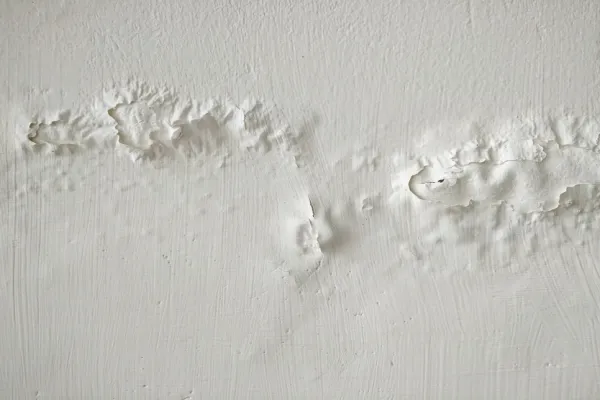There are several different ways to increase the value of their property.
One of these is to get an extension.
These come in all different shapes and sizes – more expensive than others.
So, how much does an extension cost? And how does this price vary throughout the different types of extensions?
Keep reading our article below for answers to these questions.
Examples of common house extensions
There are many different types of house extensions—some you may have heard of, and others you may not.
Each one has its own features and, therefore, a specific pricing structure.
1. Single-storey extensions
Single-storey extensions are when you extend one level of the property – usually to the rear or at the side.
2. Double-storey extensions
Meanwhile, with a double-storey extension, you would extend upwards on top of what would otherwise be a single-storey extension.
3. Room-specific extensions
Plenty of extensions are designed for a specific room in your house, such as the kitchen or bathroom.
These aim to renovate a staple room in the building and make it larger, more functional, and/or as attractive as possible.
4. Rear of property extensions
Adding an extension onto the rear of a property is popular, as it increases your square footage and can offer a convenient ‘add-on’ to an adjacent room, such as the kitchen or dining area.
5. Loft conversions
Loft conversions are becoming increasingly popular, as it enables you to turn the area in the roof into another bedroom, which can significantly increase the value of your property (because it can house one extra person).
6. Shell extensions
‘Shell extensions’ are slightly less well-known. They focus on extending/improving the outside foundations of the house.
For example, the roof, along with the brick or block walls.
7. Extensions (or renovations) to garden
Some homeowners will even focus on improving/extending their garden or finding a way to renovate it to add value to their home.
Costs of different types of extension
Kitchen extension cost
Some kitchens are bigger than others, and the local material costs will influence the price of an extension.
According to MyBuilder.com, a kitchen extension in the UK starts at around £12,000 for a ‘basic’ project but can scale up to £100,000 for a huge renovation project in a large house.
On average, the cost tends to arrive at between £26,000 to £34,000.
These figures are backed up by Checkatrade, which indicates that it costs around £1,500 to £2,000 for each square metre that you want to add to your kitchen.
Calculating how much space you want to increase it by should guide you towards a figure.
Conservatory extension cost
It is possible to buy ready-made conservatories that can add on to the end of your house.
However, although this may be a less expensive option that still increases your square footage, it will not leave an attractive or practical finish.
The room will undoubtedly be very cold in the Winter and may also be unstable.
First, you must consider the different types of conservatory extensions available for an in-depth, professional, and fully functional job.
Checkatrade lists the various options, along with their average price, as follows:
- Lean-to conservatory: £11,625
- Edwardian-style conservatory: £14,250
- P-shape conservatory: £16.750
- Rebuild conservatory as a full extension: £20,000
Obviously, for major extensions that use high-quality materials and drastically improve square footage, the price will go much higher than £20,000.
Loft conversion cost
There are different types of loft conversion, and the one you opt for will influence the amount you pay.
Hip-to-gable conversions capitalise on a sloping side roof by adding a hip that is extended vertically, creating a new space at the rear of the property.
Roof light/velux conversions, meanwhile, can be useful when your existing roof space is already big enough, and adding two lights into the ceiling is therefore sufficient to create a liveable space.
This second method does not require much money or hassle, and is therefore favoured by people who don’t have much cash available immediately.
Some of the other loft conversions available include:
- Dormer conversions, in which you add a box-shaped structure onto a pitched roof, creating walls that sit at a 90-degree angle to the floor. Expect to pay at least £45,000 for these
- Mansard conversions are undoubtedly the largest and most expensive method. Costs can stretch from £50,000 all the way up to £100,000.
- Hip-to-gable conversions, you can expect to pay £45,000 on average. This is more pricey than a roof light/velux conversion, which typically only costs around £15,000.
Shell extension cost
Shell extensions focus solely on the outside foundations of your house. They ensure they are rock solid and watertight for any future work and are often carried out when converting a building.
According to Checkatrade, Shell extensions cost around £1,200 – £1,700 per square metre (m²). Depending on the amount of space you are looking to improve, you can calculate the total cost.
Single-storey extension cost
Single-storey extensions can take around 12 weeks to complete, from start to finish.
Most sources indicate that this type of improvement is charged by the amount of space you extend – starting at around £1,500 per square metre, and ranging up to £2,500 per square metre.
Each company will quote you differently, and provide a varying level of service, so you should factor these into your decision.
Double-storey extension cost
As you would expect, a double-storey extension will set you back considerably more than if you did the equivalent work on a single-storey.
The cost per square metre may stay the same, but the price will increase because you are doing comparatively more work (perhaps double).
According to online sources, a two-storey extension starts at around £40,000, and goes all the way up to £100,000 (and sometimes even more) depending on the complexity and scale of the project.
When this much money is on the line, you should get quotes from multiple contractors.
Keep in mind that all of the prices listed above may vary depending on the property market conditions, as well as the cost of supplies for contractors.
There may be planning permission required for some of the larger extensions, too, and this is a separate avenue that you must explore and obey by.
Otherwise, if you extend your house with the necessary permission, you can be forced to tear it down, which will cost you an enormous amount.
















